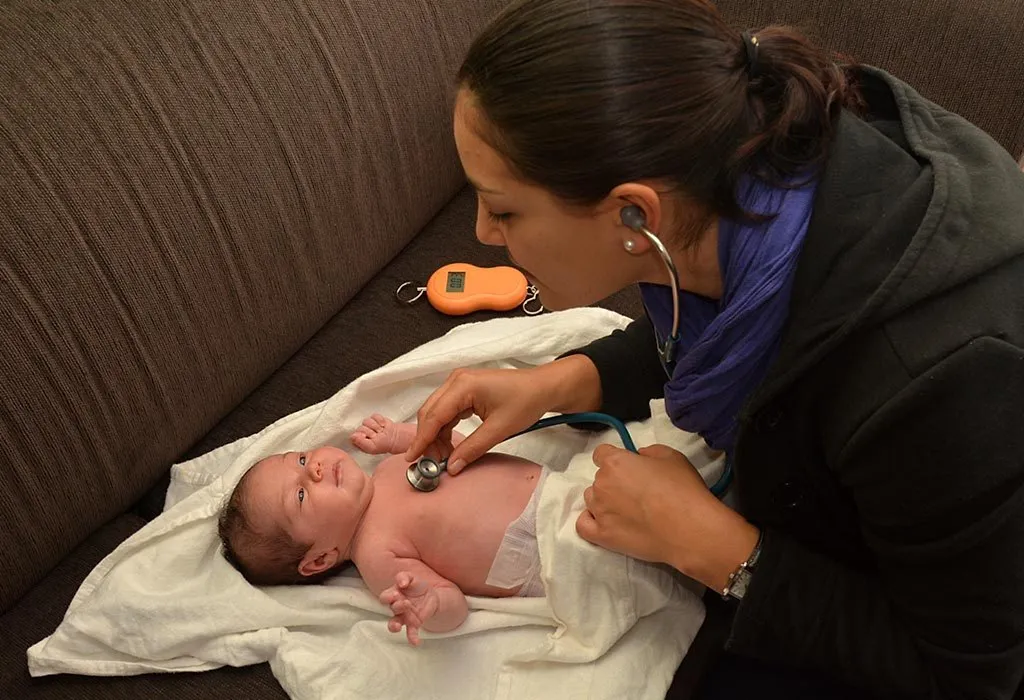Managing your baby’s health during hospital stays can be a challenging and stressful experience. Ensuring your baby receives the best care requires preparation, effective communication, and a supportive environment. This comprehensive guide offers tips and strategies to help parents navigate the complexities of hospital care, ensuring their baby’s health and well-being are prioritized.
Preparing for a Hospital Stay
Preparation is key to managing a hospital stay efficiently. Start by gathering all necessary documents, including medical records, insurance information, and emergency contacts. Pack essentials such as diapers, wipes, baby clothes, and comfort items like blankets and toys. Prepare mentally and emotionally by discussing the upcoming stay with family and healthcare providers, and setting realistic expectations about the duration and nature of the stay.
Understanding the Hospital Environment
Familiarize yourself with the hospital layout, including the locations of important facilities such as the pharmacy, cafeteria, and restrooms. Understand the hospital’s policies and procedures, including visiting hours, safety protocols, and discharge processes. Get to know the medical team and their roles, which can include doctors, nurses, specialists, and support staff, to build a cooperative relationship and streamline communication.
Communicating with Healthcare Providers
Clear and open communication with healthcare providers is crucial. Prepare a list of questions and concerns to discuss with doctors and nurses during rounds or appointments. Keep a medical journal to track your baby’s symptoms, treatments, and progress. This journal can serve as a valuable reference during discussions with healthcare providers and help ensure all concerns are addressed.
Monitoring Baby’s Health and Well-being
Regularly check your baby’s vital signs, including temperature, heart rate, and respiratory rate. Observe any changes in behavior, feeding patterns, and symptoms, and report any concerns promptly to the medical team. Active monitoring allows for early detection of potential issues and timely intervention.
Managing Medications and Treatments
Understand the medications prescribed to your baby, including their purposes, dosages, and potential side effects. Ensure medications are administered correctly and on schedule, and keep a detailed record of treatments. This helps avoid errors and ensures consistency in your baby’s care.
Ensuring Proper Nutrition
Work with hospital nutritionists to maintain your baby’s nutritional needs. Whether breastfeeding, bottle-feeding, or introducing solid foods, ensure that feeding routines are maintained as much as possible. Proper nutrition is essential for your baby’s recovery and overall health.
Hygiene and Infection Control
Maintaining hygiene is critical in a hospital setting. Practice regular hand hygiene, using hand sanitizer or washing hands thoroughly before handling your baby. Keep the hospital room clean and follow hospital infection control protocols to reduce the risk of infections.
Emotional Support for the Baby
Provide comfort through physical touch, such as holding, rocking, and gentle patting. Maintain a soothing environment by controlling noise levels and using soft lighting. Familiar objects, like favorite toys or blankets, can provide additional comfort and security for your baby.

Parental Self-Care and Support
Self-care is essential for parents during hospital stays. Take breaks, get adequate rest, and seek support from family, friends, or hospital resources. Caring for yourself ensures you have the energy and resilience needed to support your baby effectively.
Creating a Positive Hospital Experience
Personalize the hospital room with familiar items to make it more comfortable. Engage in activities that stimulate your baby’s senses, such as playing music, reading stories, or gentle play. Maintaining a positive attitude can significantly impact your baby’s emotional well-being.
Dealing with Medical Procedures
Prepare your baby for medical procedures by explaining what will happen in simple terms, even if they may not fully understand. Be present during procedures to provide comfort and reassurance. After the procedure, offer extra cuddles and soothing to help your baby recover emotionally.
Handling Emergencies
Recognize signs of medical emergencies, such as difficulty breathing, high fever, or sudden changes in behavior. Know the hospital’s emergency protocols and stay calm and informed during emergencies. Quick and composed responses can make a significant difference in urgent situations.
Post-Hospitalization Care
Plan for discharge by understanding the care your baby will need at home. Continue care routines, such as medication administration and follow-up appointments. Preparing for a smooth transition from hospital to home helps maintain your baby’s health and recovery.
Coping with Long-Term Hospital Stays
Maintain a sense of normalcy and routine during long-term hospital stays. Find long-term accommodations if necessary and stay connected with your support networks. Keeping morale high through regular activities and staying informed about your baby’s progress can help manage the stress of prolonged hospitalization.
Financial Management During Hospital Stays
Understand hospital billing processes and work with your insurance provider to manage costs. Explore financial aid options if necessary and keep track of out-of-pocket expenses. Effective financial management can reduce stress and allow you to focus on your baby’s health.
Educational Resources for Parents
Utilize books, articles, and online resources to educate yourself about hospital care and your baby’s health condition. Take advantage of hospital-provided educational materials and attend workshops or support groups. Being informed empowers you to make better decisions for your baby’s care.
Legal Considerations and Rights
Understand your rights and your baby’s rights as patients. Familiarize yourself with legal aspects of hospital care and advocate for your baby’s healthcare needs. Knowing your rights ensures you can navigate the hospital system effectively and secure the best possible care for your baby.
Special Considerations for Preterm Babies
Preterm babies have specific health needs and often require specialized care in the NICU. Understand NICU protocols and long-term health monitoring requirements for preterm babies. Stay informed and involved in your baby’s care to support their development and recovery.
Managing Sibling Visits and Support
Prepare older siblings for hospital visits by explaining the situation in age-appropriate terms. Ensure they receive emotional support and maintain family connections through regular communication and visits. Keeping siblings involved helps maintain family unity and support.
Dealing with Parental Anxiety and Stress
Recognize and address parental stress and anxiety through relaxation techniques, mindfulness, and seeking professional mental health support if needed. Managing your stress effectively allows you to be a stronger support system for your baby.
Building a Relationship with the Medical Team
Establish trust and effective communication with healthcare providers. Collaborate on care plans and participate in decision-making processes. A strong relationship with the medical team ensures cohesive and comprehensive care for your baby.
Handling Nutrition Challenges
Address feeding difficulties by working with lactation consultants or pediatric nutritionists. Adjust feeding plans as needed to ensure your baby receives adequate nutrition. Overcoming nutrition challenges is crucial for your baby’s growth and development.
Supporting Baby’s Development
Encourage developmental milestones through interactive play and sensory stimulation. Work with occupational and physical therapists to support your baby’s development. Engaging in developmentally appropriate activities promotes healthy growth.
Navigating Hospital Policies
Understand and adhere to hospital policies, including visitation rules and safety protocols. Advocate for flexible policies when necessary to ensure your baby’s comfort and well-being. Navigating hospital policies effectively ensures a smoother hospital stay.
Utilizing Hospital Resources
Take advantage of available hospital services and amenities, such as family support programs and recreational activities. Accessing these resources enhances your hospital experience and provides additional support for your baby’s care.
Creating a Supportive Network
Connect with other parents in the hospital and join online support communities to share experiences and advice. Building a supportive network provides emotional support and practical tips for managing hospital stays.
Documentation and Record Keeping
Keep thorough medical records and document your baby’s hospital journey. Utilize digital tools for record keeping and ensure all information is organized and accessible. Accurate documentation aids in ongoing care and future medical appointments.
Understanding Medical Terminology
Learn common medical terms and jargon used in hospitals to better understand your baby’s care. Ask for explanations and clarifications when needed. Understanding medical language helps you communicate effectively with healthcare providers.
Cultural Sensitivity in Hospital Care
Address cultural differences in medical care by communicating your cultural needs to healthcare providers. Ensure culturally competent care by advocating for your baby’s cultural considerations. Respectful and inclusive care supports your baby’s well-being.
Implementing Comfort Measures
Utilize pain management strategies and non-pharmacological comfort measures to alleviate your baby’s discomfort. Work with pain specialists to develop effective pain management plans. Ensuring your baby’s comfort is essential for their recovery.
Engaging in Baby’s Care
Participate in daily care routines and advocate for involvement in medical decisions. Active engagement in your baby’s care strengthens the parent-child bond and enhances your understanding of their health needs.
Utilizing Technology for Support
Use telehealth and virtual consultations to access medical support and connect with remote family and friends. Utilize apps and online tools for tracking your baby’s health. Technology can provide valuable support and convenience during hospital stays.
Environmental Adjustments
Ensure a comfortable room temperature, adjust lighting and noise levels, and create a calming atmosphere for your baby. Environmental adjustments contribute to a more comfortable and healing hospital stay.
Preparing for Transitions in Care
Handle transitions from intensive to regular care smoothly by preparing in advance. Manage transfers to other hospitals and prepare for home care transitions effectively. Proper planning ensures continuity of care.
Recognizing and Addressing Baby’s Discomfort
Identify signs of discomfort, such as crying, fussiness, or changes in behavior. Address common causes of discomfort and use effective soothing techniques. Alleviating discomfort promotes your baby’s health and well-being.
Promoting Baby’s Sleep
Create a sleep-friendly environment by managing hospital interruptions and establishing a sleep routine. Promoting good sleep hygiene is essential for your baby’s health and recovery.
Engaging in Therapeutic Play
Incorporate therapeutic play into daily routines to support your baby’s development and well-being. Use age-appropriate play activities that stimulate your baby’s senses and encourage interaction.
Managing Medical Equipment
Understand the use of medical devices and ensure safe handling and maintenance. Receive training and support from hospital staff to manage medical equipment effectively. Proper use of medical equipment ensures your baby’s safety.

Navigating End-of-Life Care Decisions
Discuss palliative care options and support each other through difficult decisions. Access hospice care resources to provide compassionate end-of-life care if needed. Navigating these decisions with care and support is crucial.
Celebrating Milestones in the Hospital
Recognize and celebrate developmental achievements and special occasions during the hospital stay. Keeping a positive outlook and celebrating milestones boosts morale and supports emotional well-being.
Understanding Hospital Safety Protocols
Ensure compliance with hospital safety guidelines and know your role in maintaining safety. Report any safety concerns to hospital staff. Adhering to safety protocols protects your baby’s health.
Supporting Breastfeeding in the Hospital
Access lactation consultants and overcome breastfeeding challenges in different hospital settings. Support breastfeeding through education and practical assistance.
Preparing for Potential Setbacks
Anticipate and manage potential setbacks by developing contingency plans. Staying resilient through challenges ensures continuous care for your baby.
Maintaining Hygiene for Baby’s Belongings
Clean and disinfect your baby’s items regularly and manage laundry in the hospital. Proper storage of baby’s belongings ensures hygiene and safety.
Exploring Holistic and Complementary Therapies
Explore the benefits of holistic and complementary therapies available in hospitals. Integrate holistic care with medical treatments to support your baby’s overall well-being.
Adjusting to Extended Hospital Stays
Cope with long-term hospitalization by maintaining morale and staying connected to outside life. Find strategies to manage stress and support your baby during extended stays.
Understanding Insurance and Coverage
Navigate health insurance policies and understand coverage for hospital care. Handle insurance claims and disputes effectively to manage financial aspects of hospital stays.
Building Resilience as a Family
Strengthen family bonds during hospital stays by supporting each other’s emotional needs. Create a resilient family unit to navigate challenges together.
Looking Forward: Planning for the Future
Set post-hospital goals and plan for continued care and monitoring. Embrace the journey ahead with optimism and preparedness.










